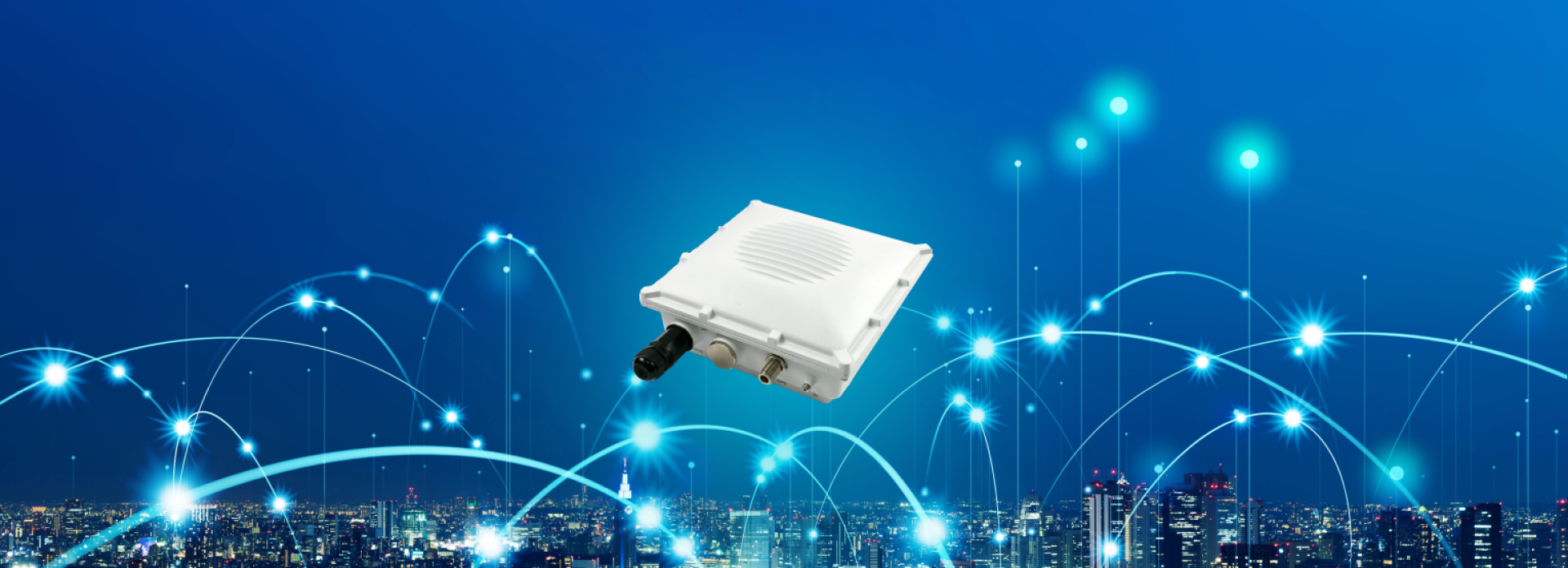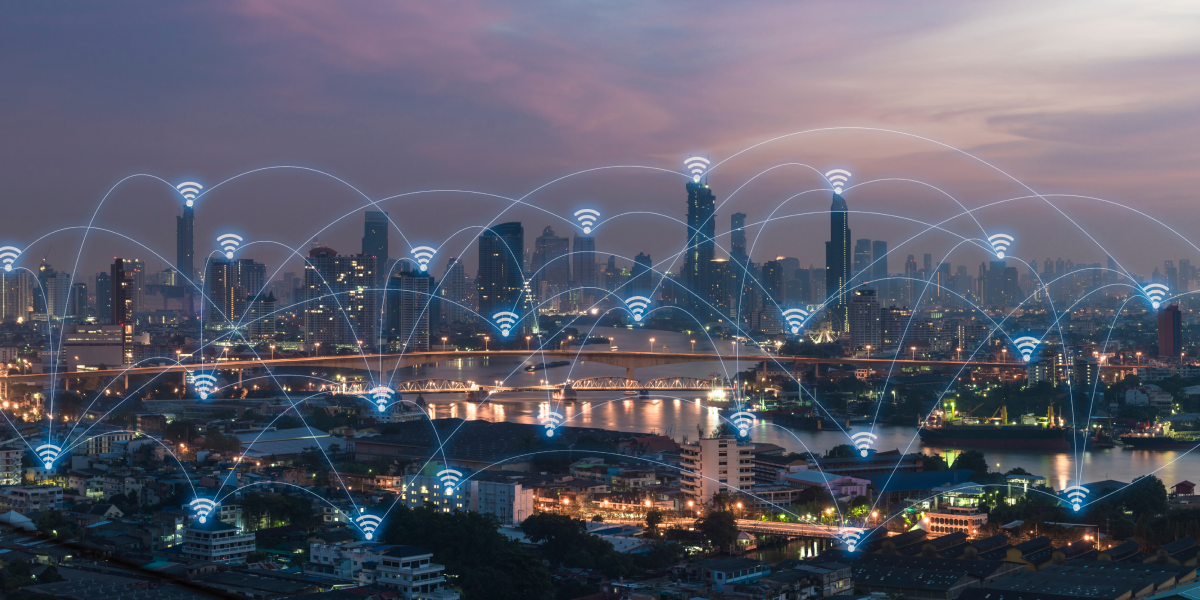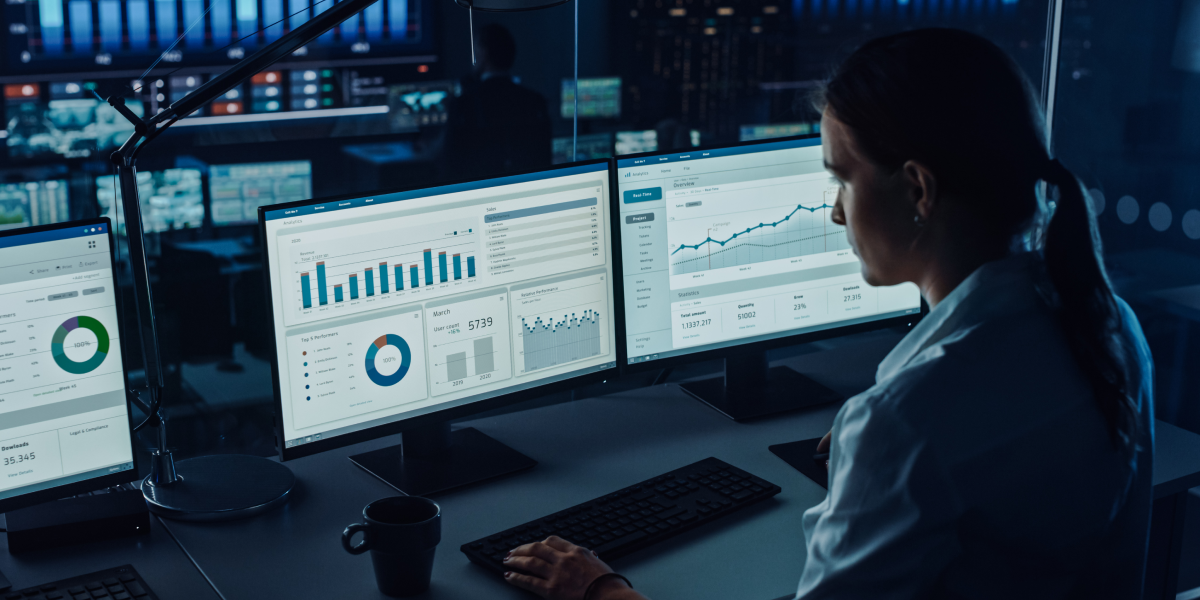LoRa gateways are the basis for smooth communication between end devices and the network server in Internet of Things (IoT) technology. Gateway devices are an essential part of LoRaWAN networks (networks which operate with a low-power and long-range wireless protocol) and are designed to efficiently transmit data over vast distances. This article explains the functionality of gateways, the industries they are used in, their security features, and their role in building smart city architecture.
What are LoRa gateways
A gateway, or base station, serves as a bridge between LoRa-capable devices and the LoRa network infrastructure. The gateway receives data packages from radio modules, smart meters, or other Internet of Things devices equipped with LoRa transceivers and then sends them to the network server for processing and analysis. This type of communication within a multi-gateway network occurs in the reverse direction as well: the base station sends commands or messages from the server back to the relevant devices, providing two-way communication.
Gateway components and architecture
The LoRa gateway architecture consists of several key components:
Antenna: responsible for receiving and transmitting signals in the LoRaWAN network to the end devices and back.
Transceiver: communicates with the end devices using LoRa modulation techniques and interacts with the gateway processor.
Processor unit: this can be a microcontroller or a single board computer that performs such tasks as package forwarding, information encryption/decryption, and network communication.
Ports: gateways are often equipped with Ethernet, Wi-Fi, or cellular modules to connect to the Internet and communicate with a network server.
Power: depending on the location, gateways may be powered by the grid or by alternative sources of electricity such as solar panels or off-grid batteries.
Deployment and application options
LoRa gateway deployment can be found in a variety of industries due to their versatility and reliability. In agriculture, the devices facilitate precision farming techniques and allow remote monitoring of soil moisture, temperature, and other environmental parameters.
Using smart metering, the base stations allow utility companies to remotely monitor energy and water consumption, detecting any anomalies in real time. This improves the operational efficiency of utility infrastructure.
LoRa gateways play a key role in asset tracking, logistics management, and industrial automation by providing reliable long-distance communication. The base stations operate effectively in dense urban environments and cover large geographical areas. This makes them an ideal choice for smart city projects, enabling municipalities to deploy sensor networks for traffic management, waste management, and environmental monitoring.
Security issues
Considering the often sensitive nature of data being transmitted, LoRa gateway security is critical to ensure the integrity of a network.. LoRaWAN utilizes advanced data encryption techniques to protect the integrity and confidentiality of information transmission. LoRa gateways strictly adhere to security protocols, implement secure key exchange mechanisms, and filter unauthorized access attempts.
In addition, LoRa gateways are often equipped with:
- built-in firewalls to prevent malicious attacks;
- intrusion detection systems to recognize anomalous behavior;
- secure boot mechanisms to prevent unauthorized modifications to firmware.
By adhering to industry best practices and standards, organizations can mitigate potential security risks and protect their Internet of Things deployments from cyber threats.
Smart city architecture
In relation to smart cities architecture, LoRa gateways serve as the basis for deploying IoT projects and form an integral part of the network architecture and backend infrastructure. Base stations are placed throughout the city so that they form a mesh network, allowing for smooth connectivity in an urban environment. Put simply, gateways serve as a channel to collect data from various sensor nodes scattered across the city, helping to organize real-time monitoring and analysis.
Centralized management
Efficient management and orchestration of LoRa gateways is required to realize smooth operation of IoT projects on a large scale. Centralized gateway management platforms provide administrators with a unified interface for preparing, monitoring, and troubleshooting LoRa gateways across different deployment sectors. These platforms provide detailed control over gateway configurations, firmware updates, and performance optimization. This simplifies maintenance tasks and improves the efficiency of the smart city network.
LoRa gateways play a key role in providing low-power and long-distance connectivity in LoRaWAN networks. Both gateway reliability and versatility allows the devices to be used in a variety of industries, from agricultural projects to smart cities and the industrial Internet of Things. By implementing robust security measures and centralized gateway management methods, companies and enterprises can exploit the full potential of LoRa technology, driving innovation and increasing the efficiency of their projects.





